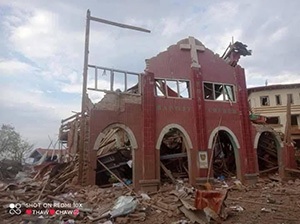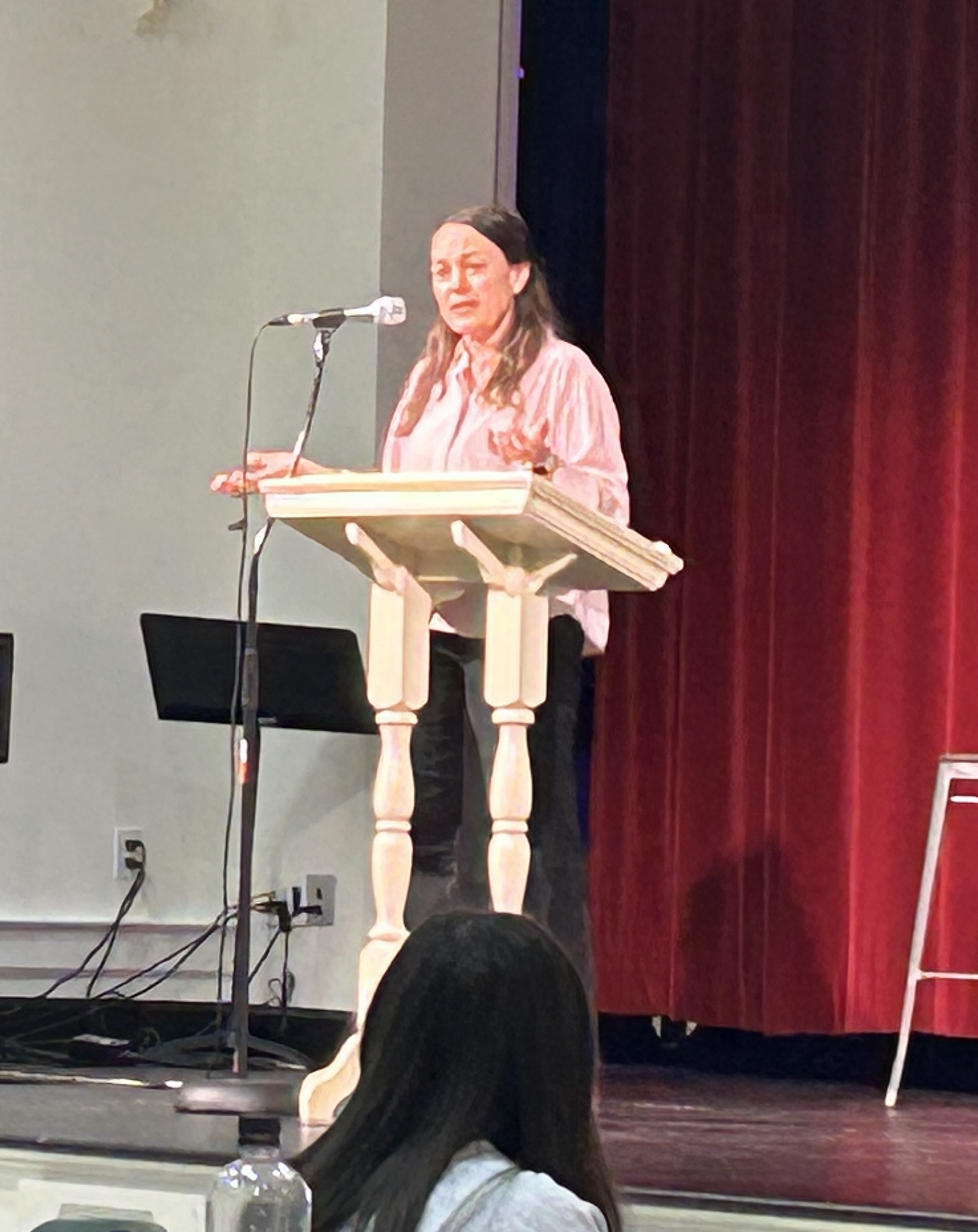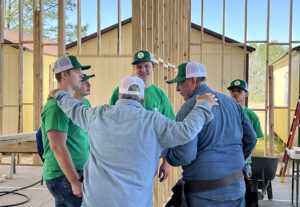Video shows how the Texas Lottery was rigged
Video evidence sheds new light on how some individuals inside the Texas Lottery Commission allegedly enabled a syndicate with international connections to rig the system and claim a $95 million Texas Lottery jackpot.
The new evidence—alongside several ongoing investigations and lawsuits—adds momentum to a growing movement to do away with the Texas Lottery, close observers of the Texas Legislature said.
 The brief video shows the interior of a storefront office where five individuals—two of whom appear to be minors—worked at computer terminals to print out lottery tickets. The Baptist Standard possesses the unedited video but is not posting it since it depicts minors.
The brief video shows the interior of a storefront office where five individuals—two of whom appear to be minors—worked at computer terminals to print out lottery tickets. The Baptist Standard possesses the unedited video but is not posting it since it depicts minors.
The New York Times reported April 20 the video offered a glimpse into a three-day ticket printing rush in April 2023, when a British gambling consultant worked with Lottery.com and other entities to buy practically every combination of possible lottery numbers to secure a win.
The Times article notes how state lottery officials—charged with enforcing rules for playing the lottery—overlooked violations. Instead, they facilitated the delivery of equipment to four storefront offices posing as retailers to print out about 26 million paper lottery tickets.
The article told the complicated story about how the former owner of a lottery data company purchased by Lottery.com—who later sued Lottery.com for failure to pay—obtained the cell phone with the video and thousands of incriminating text messages.
‘A scheme to cheat the people of Texas’
In an interview with the Baptist Standard, Sen. Bob Hall, R-Edgewood, asserted the commission enabled “outright theft” and likened the scene depicted in the video clip to a “sweat shop.” Hall has led the charge in the Texas Senate to investigate wrongdoing by the Lottery Commission.
“No one on the outside could have ever done what they did without the close cooperation of the personnel within the Lottery Commission—changing the rules, providing the equipment and ignoring what obviously was a scheme to cheat the people of Texas,” he said.
Hall pointed to rule changes permitting the use of electronic devices, allowing the “speed-buying” of tickets, and authorizing the delivery of multiple machines with electronic QR code readers to specific locations.
The rule changes resulted in 60 machines in four locations running constantly for 72 hours to generate tickets with 12.8 million combinations of numbers, he said.
“It took it being orchestrated by personnel within the Lottery Commission to defraud Texans who played the lottery in good faith that they just might have a chance to hit the big one,” Hall said.
Investigations and legal actions
Revelations in the Times article added more fuel to the fire surrounding the Texas Lottery:
- In February, Gov. Greg Abbott ordered the Texas Rangers to investigate both the April 2023 bulk purchase of lottery tickets and a more-recent $83.5 million win involving lottery couriers.
- Two days later, Attorney General Ken Paxton announced his office was launching its own investigation into the Texas Lottery to determine whether any state or federal laws were broken.
- Lottery watchdog Dawn Nettles filed a class action lawsuit on behalf of Texas Lottery players, suing former Lottery Commission Director Gary Grief, Lottery.com and IGT, the vendor responsible for administering the lottery, for fraud.
- Earlier this month, a Texas Lottery winner from Hood County filed a lawsuit, asserting his $7.5 million jackpot winnings were significantly less than what they would have been if the rigged $95 million jackpot had not been awarded less than a month earlier.
- The Wall Street Journal published an investigative article April 12 asserting Bernard Marantelli, a London-based banker-turned-bookmaker, spearheaded an international gambling syndicate to rig the Texas Lottery, with financial backing from Tasmanian gambler Zeljko Ranogajec.
- Last week, the Texas House of Representatives completely defunded the Texas Lottery Commission in its budget for 2026-2027.
‘Should be held accountable’
On April 21, Ryan Mindell resigned as executive director of the Texas Lottery Commission. Sergio Rey, chief financial officer of the agency, was named acting deputy director.
“Laws were broken, and the folks involved should be held accountable. Legislators have had it with the lottery. They feel misled,” said Rob Kohler, consultant with Texas Baptists’ Christian Life Commission.
The fact that the Texas House “zeroed out” the Texas Lottery Commission in its budget and the Senate likely will do the same signals “the very real possibility” the abuses perpetrated could signal the end of the Texas Lottery for the foreseeable future, Kohler said.
Hall likewise is hopeful the light shed on abuses within the Lottery Commission could lead to its demise.
“The state has no business being in the gambling business,” he said.
Corruption within the Texas Lottery Commission should serve as a “wake-up” call to lawmakers who are considering other gambling expansion in the state, Hall asserted.
“If the state cannot manage something as simple and straightforward as the lottery and you have that much criminal activity involved … what can we expect to come into our state when we start allowing sports betting, internet betting and casinos all over the state?” Hall asked.
“The culture that gambling brings” is contrary to Texas values, he said.
“The criminal element is deeply embedded in gambling where there’s a lot of money. And while there’s a lot of money in the lottery, it pales in comparison to the money in sports gambling, internet gambling and casinos.”














